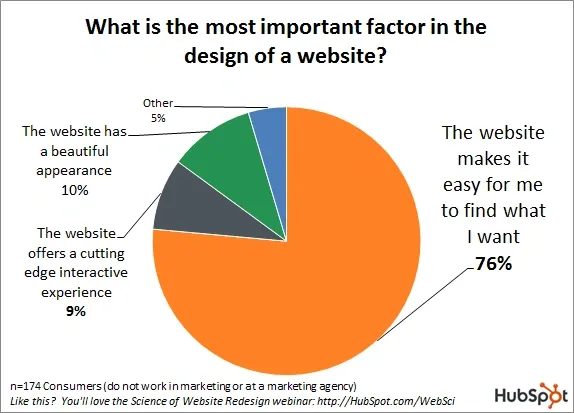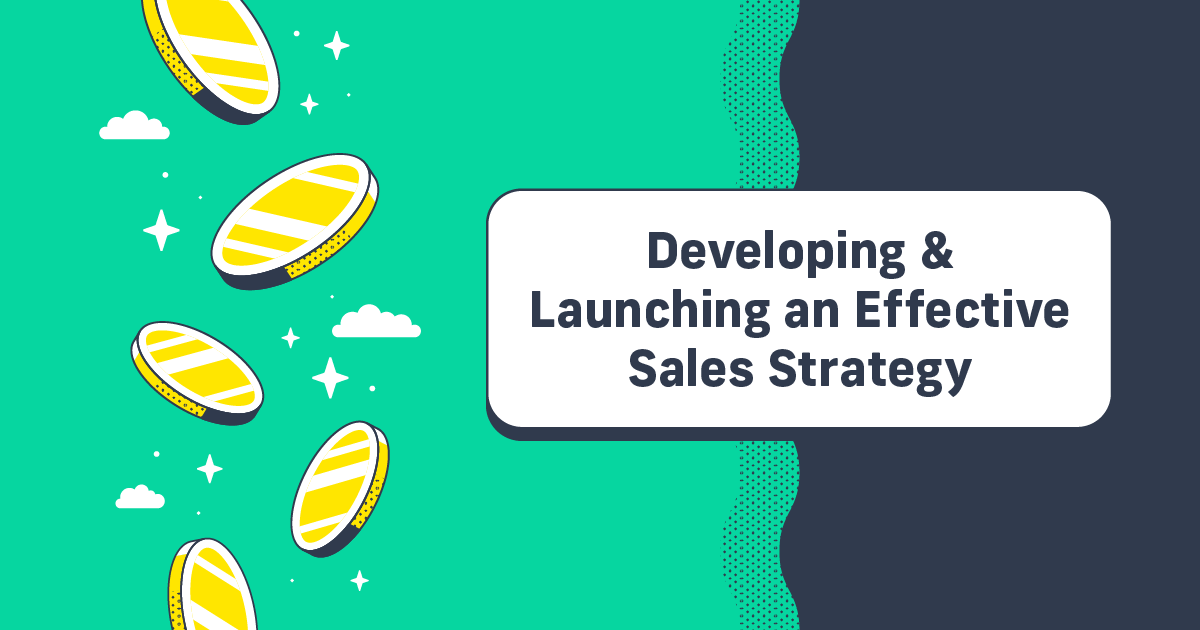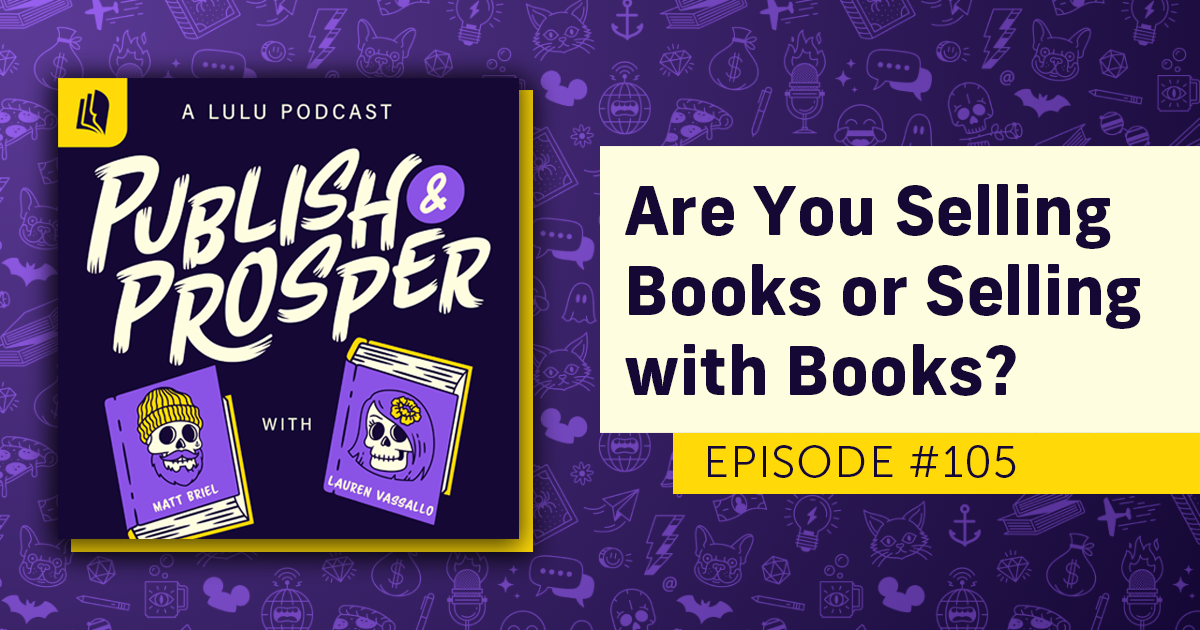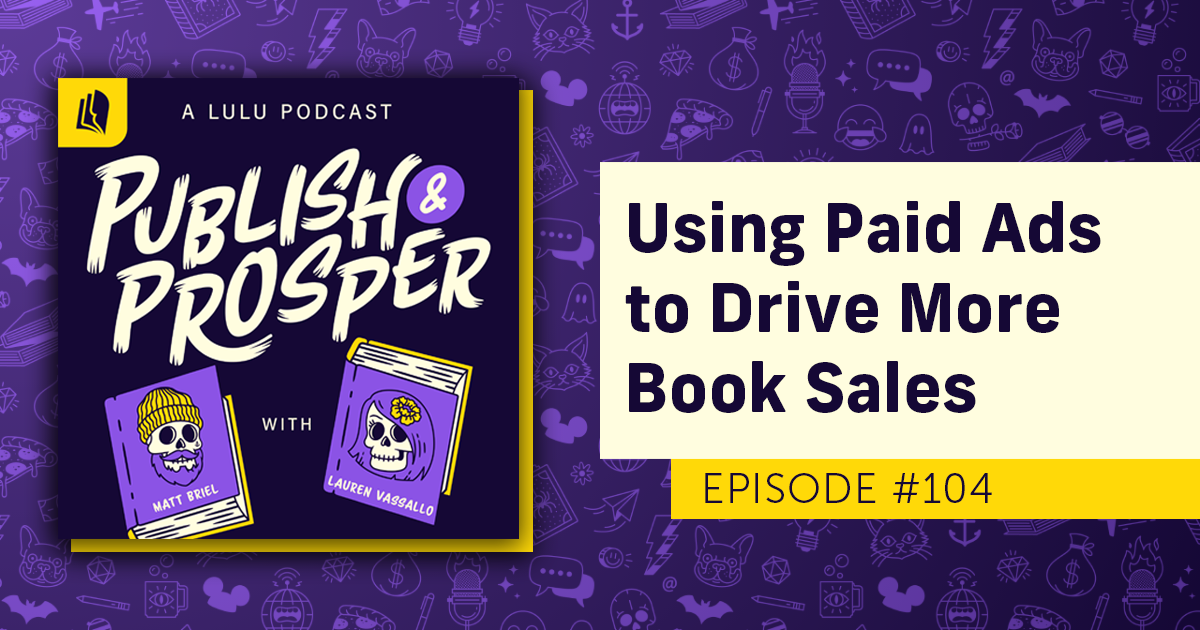How to Google: Get Found Online or Get Left Behind
The Google search bar has become iconic in the online world. Other search services exist (Bing, DuckDuckGo, etc…), but Google has eclipsed all of these with its powerful and ever-evolving search algorithms and machine learning.

What Google has effectively done is make the massive and varied Internet a digestible and easily consumable thing for all of us. Without the ability to search and segment, we’d be endlessly lost in the deluge of information. Google makes the huge and imposing manageable. And more than that, they do it better than any other service.
The primary function of Google is (of course) searching the Internet. But how do they know what to show you? And how do they know to return the specific searches that are relevant to you?
It’s not magic. It’s data. Lots and lots of data. From lots and lots of sources. You probably already know this, but all of the biggest and most powerful Internet companies rely heavily on data. Facebook is essentially a massive data collection tool. Social networking is the draw that gets a user to sign up for things like Facebook, but data is the goal. The same is true for all social media apps.

And ecommerce is the same. Amazon is the world’s largest marketplace, but the company relies heavily on data to drive its initiatives.
You might be wondering how this applies to you. Why is it important to recognize how Google and other Internet companies operate? And how can this be turned to your advantage?
Before we can really understand Google, we have to start with the simplest use cases. And that begins with a very basic question: who will you be selling your book to?
Okay, I’ve posed a lot of questions. Let’s take a step back. Think about how you use Google yourself. Think about how many times a day you Google something. And how many times a day you ask a friend, family member, or coworker a question, and their response is to either tell you to “Google it”, or to Google it to find you an answer. I just used “Google” as a verb three times. If that doesn’t speak to the power Google has on our interactions with the Internet, I don’t know what does.
Googling (or searching in general) is a central piece of our lives. If you don’t already use Google to find answers, you should. Not just because it’s a powerful tool, but also because you want to use Google to sell more books. If you want to understand how Google works, the first step is to use Google. The next time you have a question, plug it into Google.
Using Google to Your Advantage
Google is used for around 3.5 billion searches a day. If you want to see a truly crazy thing, head over to Internet Live Stats and watch the ticker of Google Searches spin up. It’s incredible. Let me type it out to give an even grander sense of the scale here. 3,500,000,000 times a day. That’s one search for every two people on the globe.
I won’t beat this point to death. Google is a powerful tool. But let’s be completely honest; it is very unlikely that anyone is going to directly find your book with a Google search. Industry giants are going to pull so much weight that it’s almost not worth your time to compete with them. So how do you get your book into the mix?
Well, you could try to use the many paid tools that Google offers. There are Google’s advertising features like AdWords. And there’s Google Analytics, a tremendous tool for keeping up with traffic on your author site or blog.
But we’re going to get even more basic and think about how you can be sure YOU appear on Google.
Not your book. You. The author. The person behind the book, the brand we always talk about promoting. YOU.
Go to Google and search for any famous author (or any famous person period) and see what comes up. I bet you see a search result screen something like this:

The first hit is the author’s website, which makes sense if we’re searching for their name. Next, we see some Twitter posts, because J.K. Rowling is pretty active on Twitter. Then a “Top Stories” bar with recent hits associated with her and her work. From there the usual kind of search results begin. But what about that massive box on the right side of the screen?
The Knowledge Panel
That’s something Google calls a “Knowledge Panel” and it’s powered by their Knowledge Graph project, a system for understanding search terms and providing relevant information in an easy-to-use panel. The goal, as one reviewer mentioned back in 2012 when the Knowledge Panel first came into being, was to allow Google to provide answers, not just links.
The Knowledge Graph operates on a variety of levels to enhance search and is present in every search result in some form. If you really want to learn more about how the Knowledge Graph operates, just go ahead and Google “What is the Knowledge Graph?”
We’re more interested here in how this Knowledge Graph impacts you and your author brand. Remember what I said, you have very little chance of discovery based on your book title, keywords, or metadata. Yes, that information is relevant, but you should not design your metadata with the idea that Google will immediately recognize and rank your book well.
Instead of competing with the distribution giants for those top spots when a reader does a search for a new book, you want to focus on using Google to reinforce your author brand.
Imagine this scenario. You go to a writing group, meet a dozen or so new authors and writers, mingle and chat with them. You mention your self-published book more than a few times, but you don’t have business cards on hand, or you only hand out a few. Now you’ve got a handful of people who know your name.
So, what happens if they break out their phone or go to their computer later and Google YOU? Will you show up at the top of the searches? Will the Knowledge Graph find enough information about you to send those searchers a Panel with your face, author info, and book thumbnails? You certainly hope so, right?
You need to build your web presence not to promote your book, but to promote yourself and your author brand. If no one can find you online, they won’t be able to buy that book!
How, then, do you ensure you show up and not one of the other people with your name? You have to optimize yourself. You need to consider how Search Engine Optimization (shorthand as SEO) impacts your content online. And you need to further think about how Google looks for and categorizes the information from your content, so a search online is likely to find you and not some other person with the same name.
Getting Optimized
Here’s a graphic from Hubspot I absolutely love:

See that huge orange chunk? That’s the portion of users who say the most important factor in a website’s design is ease of use. We don’t care much for how pretty a site is or if it does something weirdly unique. We want it to be simple and useful.
That should make sense. You search for something online, and the top results will be the ones that are most useful and easy to use. Google determines these factors based on:
- Keywords
- Heading 1 and image titles
- Metadata description
- User experience
Google also knows the searcher’s history. If the person looking you up has searched for other authors or books, or even just author and book-related content, Google will begin connecting the dots. If there are two Joe Authors out there, one of them is you (the self-published author) and the other is a dentist from Texas, Google will have an idea about which Joe Author the searcher is after based on their own history.
That is in no way enough though. When a potential reader searches “Joe Author’s book” or something similar, you need to be 100% sure you are popping up in that Knowledge Panel.

Your Free Lulu Account
Create a Lulu Account today to print and publish your book for readers all around the world
What Are Keywords?
Not sure what a keyword is? I bet you can guess my suggestion. Yup, go over to Google and type in “What is a keyword?” The first result is likely to be a Moz article on SEO, and possibly some varied definitions. For our purposes, don’t worry too much about the dictionary definition and focus on the SEO definitions.
Here’s that Moz article for reference, it is worth reading – What Are Keywords?
I’m not going to belabor the point about keywords. If you’re really interested in building your book and author brand’s search value, you need to learn about them and there is already a wealth of information from experts out there.
Here’s a couple of pieces of recommended reading for learning more about keywords:
We know that keywords tell Google what your content is, and then Google rates your content and lists it in search results based on their own algorithms. We know that by planning your keywords carefully and thorough research of other successful sites with similar content, you can increase the SEO of your own content, making it more likely to appear in searches.
Each piece of your author content on the web needs to be written carefully with your chosen keywords in mind. I’ve said it elsewhere, but I cannot stress enough how useful it is to write out a list of every word and phrase you can think of to associate with yourself as an author and your book. Then revisit that list often, solicit outside opinions, and research other similar authors both big and small to see the keywords they emphasize.
Why Should I Title My Heading 1 and Images?
Your Heading 1 is the banner text, the declarative statement at the forefront of your author website. It should tell a story in and of itself. It should be around 60 characters long.
No small task, I know. But you can make it much easier if you’ve taken some time to develop keywords. That H1 is going to need them. Identify the most important ones based on how you think you can best serve up interesting and meaningful content to a visitor.
Remember also, as an author, there is an expectation of content from visitors. You are trying to sell them a book so they will want a taste of your writing prowess before they commit. Providing fresh, meaningful content through a website or blog is a great way to make a reader into a regular visitor. This is called Content Marketing, and it’s one of the most common and successful marketing strategies in use today.
Use your keyword knowledge to craft a descriptive, explicit Heading 1. Also, be sure to add a title, alternate title, and description to all your images. This might not be something you think of immediately, but it’s well worth it. Google looks at these pieces of text when establishing your search value.
How Do I Craft a Metadata Description?
If you’ve published and distributed a book, you’ve got an idea about metadata. The same basic principles apply to website design. So, you’ve got to keep this in mind while setting up your author website or blog.
For the sake of being thorough, let me briefly cover what a meta description is:
- An HTML line of code that describes the content in 160 characters or less.
- In code, it will look something like this:
<meta name=”description” content=”your meta description”>
</head>
If you’re unfamiliar with HTML, the above code content line is very likely to appear in search results. The description should be short and, you guessed it, employ your keywords.
Now, some data points to Google relying less on meta descriptions when ranking search results. The key thing to remember is that the meta description is visible, even if Google doesn’t rank based on it. If the description entices readers to click on your link, that helps build your SEO value, which in turn helps Google see your site as valuable for similar searches.
If you’re interested in a deep dive into meta descriptions, I suggest this article on the subject.
Why Does User Experience Matter?
Neil Patel is a well-known entrepreneur and marketer with a lot to say about how to effectively get noticed by Google. The most relevant thing he has to say in regards to empowering your profile on Google is “[t]he future of SEO is great user experience.” The assumption behind his statement is that you want to develop a long-term, high-value profile on the web. You want your author brand to grow bit by bit over time.
Based on the way Google currently ranks content, a high-quality experience is the best way to become relevant to Google’s searches.
I’m going to lean on Mr. Patel’s wisdom once more and offer an abridged list of his points for making a website (or an author blog):
- Attention-Grabbing Headlines (remember your keywords)
- Use data – facts, figures, images. Anything that supports your content with verifiable data
- Use social media and link those profiles to your website (or blog) with sharing features.
His list goes on but for an author looking to stand out and “show up,” these three are some of the most important.
Getting into That Knowledge Panel
Okay, so we’ve covered how Google decides if you and our content are valuable when people search. Where does this leave you in the sea of other authors and websites though?
Well, ideally it leaves you at the top of the pile when it comes to folks searching for you. Remember that the odds of your book itself surfacing in a search are slim—most searchers are going to chase search phrases like “mystery best-seller” or “good new novels” or something similar. Books published by big publishers are going to dominate those results because the publishers have invested a great deal of money in getting those books to appear by bidding on those keywords.
You’re aiming for recognition among people who have already engaged with you in some way(either in person or digitally). This includes someone who happens on your blog, sees you at a signing, or even just sees your name on a poster advertising that signing. You want to be first in line when they Google you. You want to claim that Knowledge Panel.
So, you’ve built a webpage and it has a blog with regular content. You’ve used the right keywords, you added a solid meta description, and your images all have text tags and alternate text tags. Now what?
Wikipedia
Getting your own Wikipedia page is hard, and they have some pretty strict rules about editing your own content. To get there in the first place, they have a standard of “notability,” which is pretty vague. The more references to you and your work across the web, the more notable you become, and therefore the worthier of a Wikipedia page. Awards, press releases, and book reviews can all contribute to that notability.
If you can get a Wikipedia page, it goes a long way to improving your chances of Google populating a Knowledge Panel for you.
Structured Data
Alright, I have to say this is going over my head as far as technical content goes. Think about this as an extension of the meta description I talked about earlier, though even that may be misleading.
Structured Data is code you can use to very narrowly describe you, your site, and your book. If you have an author website, you would want to use Structured Data on your About page with very specific information. And on the book page with similar information.
I’m not going to say more about it, as I fear if I try I might cause more confusion than provide help. My advice is to go to Google’s developer pages regarding Structured Data and read up on their literature. Or if you can afford it, hire a website designer well-versed in creating thorough Structured Data.
Google+ / Webmaster
Google+ is sort of a Google-based attempt at Facebook. Only it’s not. That said, Google+ does have some very distinct uses. For one, the service is hyper-focused on Communities—user-created conversation around a central topic. Google separates itself from other social networks with these focused groups. While Google+ doesn’t have the audience or reach of Facebook or Twitter, it does have the advantage of being part of Google.
For your author brand, having a Google+ Account will assist Google in finding relevant data to populate that Knowledge Panel. For no other reason than this search enhancement, Google+ is worth having. In fact, I would say this is THE reason to use Google+. As a Constant Contact blog puts it, “Google loves…Google!” The algorithm Google uses to search is going to look very closely at Google+ accounts, so having one and ensuring you’ve gone to the right lengths in terms of keywords, meta descriptions, and image tagging will be a big boost in claiming that Knowledge Panel.
Another of Google’s tools is their Webmaster tools, offering support for your website hosted by and powered by Google. Alongside the Webmaster are their Analytics tracking and the Search Console. Your author website can use Google’s tools to both improve the quality of the site and help Google find you through search. I won’t go into too much depth with these options, as they stray into the very technical side of website design, but I will say that you should either familiarize yourself with these concepts or ensure the developer you hire to build your site is utilizing them for you.
Final Thoughts
Okay, this is a lot of information, I know. It all circles back to the central question of discovery online. As a self-published author, there is a low likelihood you’ll be found simply through search. The amount of possible search results is too broad and dominated by big companies like Amazon or Barnes & Noble to reliably expect your book to surface.
The area you can and should take charge of is YOU. The more relevant, accurate information about you (you the author, not necessarily the person if you write under a pseudonym), the more likely it is that you’ll appear in a Knowledge Panel, or that your work will show in the Knowledge Panel as “similar works” when authors in your genre appear. Because taking on giant book retailers directly is a desperate and likely futile challenge, you need to market smarter.
To do this, you need to make an effort to accurately and clearly define your brand so that Google will recognize you when readers (and potential readers) search for you. It will still be on you to get out there and convince people to look you up and try your content, but if you can achieve that, you owe it to yourself to be sure what they find is high quality and accurate.





